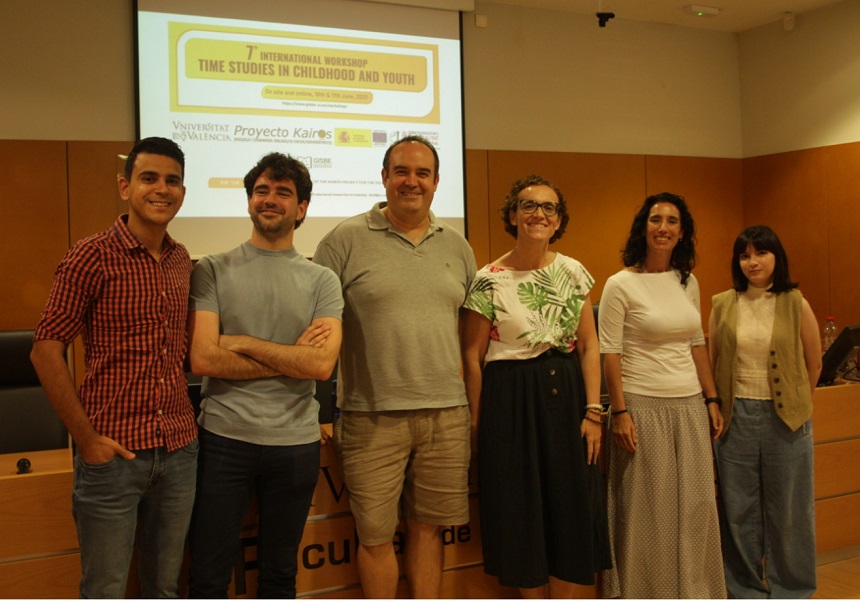Female university students present less public stigma associated with mental disorders than their male fellow students
- Scientific Culture and Innovation Unit
- December 2nd, 2022

A study by the University of Valencia (UV), the INCLIVA Health Research Institute and the Mental Health Network Biomedical Research Centre (CIBERSAM) on the public stigma associated with mental disorders in university students points out the importance of universities being involved in interventions to reduce attitudes, stereotypes, prejudices and discrimination towards this group of people. In an article published in the journal Frontiers in Psychiatry, one of the main results is that university women present fewer stigmatising attitudes than university men, although stereotypes and prejudices are similar.
The World Health Organization (WHO) points out that the stigma associated with mental disorders is one of the most important problems related to mental health in contemporary society. In fact, the stigmatisation process can be more devastating than the disorder itself. When speaking of stigma in a generic way, reference is made to stereotypes and prejudices that cause discrimination and exclusion behaviours. The presence of this stigmatisation process creates barriers to seeking treatment, social integration and obtaining employment, among others, thus making it difficult for those who suffer from a mental disorder to have economic and personal independence.
Of the various types of stigma, this pilot study has focused on the analysis of public stigma. This type of stigma refers to the one that occurs in the members of a population. At the international level, different investigations have shown the presence of public stigma in university students, in a similar way to that which occurs in the general population of a certain country. The importance of evaluating to know the situation and to be able to carry out programs aimed at specific populations to reduce the stigma associated with mental disorders has also been pointed out.
One of the main conclusions of the study is that “women present less authoritarianism and socially restrictive attitudes, as well as more benevolence, acceptance of the integration of people with mental disorders in the community and willingness to offer help”, highlights Inma Fuentes, professor from the Department of Personality, Evaluation and Psychological Treatments of the University of Valencia, and a researcher at INCLIVA and CIBERSAM. In the same sense, students who know or live with a person with a mental disorder and Medicine and Psychology students present less stigmatising scores.
“The study points out the need to intervene to reduce stigma taking into account the profiles that characterise each group. Taking into account that anyone can contribute to the stigmatisation process, it is very important that all social agents that have the possibility of fighting against this process, including institutions such as universities, launch actions/intervention programs against stigma”. explains Juan Carlos Ruiz, director of the Department of Methodology of Behavioural Sciences at the University of Valencia.
Another of the conclusions of the study is the importance of intervening in the reduction of stigma among those who will work in the education sector, such as the student body of the Master’s degree. “This training is decisive because these professionals are key to early detection of the presence of stereotypes, prejudices and discrimination associated with mental disorders”, highlights Vicent Balanzá, professor at the Department of Medicine of the University of Valencia and researcher at the Mental Health Networking Biomedical Research Centre (CIBERSAM).
Methodology
325 first year students of five grades at the University of Valencia participated in this study, aged between 18 and 54, 68.62% of whom were women. The different variables that make up stigma have been evaluated using two standardised instruments, such as the Community Attitudes towards Mental Illness scale (CAMI) and the stigmatising attributions towards mental illness questionnaire (AQ-27).
Carmen Dasí and María del Castillo Fuentes (Department of Methodology of Behavioural Sciences); Cristina Pardo (Department of Applied Economics); Francisco Pérez and Ladislao Salmerón (Department of Evolutionary Psychology); Pau Soldevilla (Faculty of Psychology); Joan Vila, from the Data Analysis Laboratory (IDAL) and the medical student Marta López-Gilberte have also participated in the research.
Article: Ruiz J. C., Fuentes-Durá I., López-Gilberte M., Dasí C., Pardo-García C., Fuentes-Durán M. C., Pérez-González F., Salmeron L., Soldevila-Matías P., Vila-Francés J. and Balanza-Martínez V. (2022) «Public stigma profile toward mental disorders across different university degrees in the University of Valencia (Spain)». Front. Psychiatry 13:951894. doi: 10.3389/fpsyt.2022.951894
Categories: Investigació a la UV , Finançament recerca , Facultat de Medicina i Odontologia , Facultat d'Economia , Facultat de Formació del Professorat , Escola Tècnica Superior d'Enginyeria , Facultat de Psicologia , Difusió i comunicació científica , Internacionalització recerca , Recerca, innovació i transferència
















